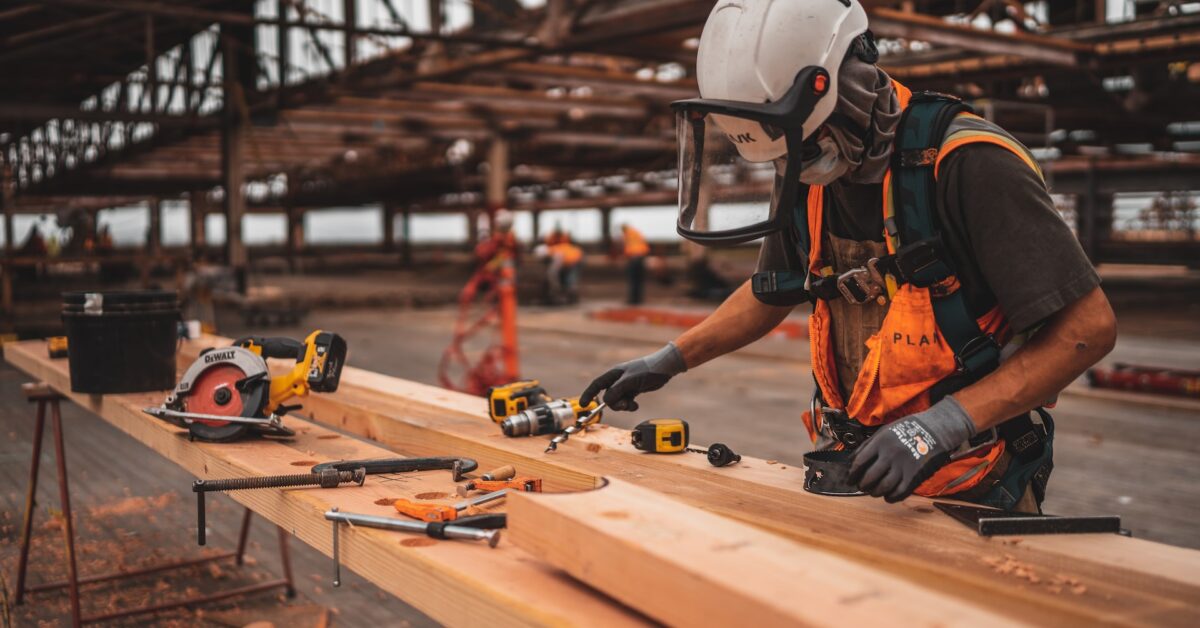If you’ve ever seen a gravel driveway or a concrete sidewalk, then you’ve seen aggregate materials at work. Aggregate materials are widely used in construction and are an important part of the foundation of many different types of projects. In this blog post, we’ll take a look at some of the benefits of using aggregate materials in construction.
What Are Aggregate Materials?
Simply put, aggregate materials are raw, basic materials used in construction or remodeling projects. As mentioned, a gravel path is made from aggregate, but so is asphalt. According to the Associate of Equipment Manufacturers, 38,000 tons of aggregate material is used to make one mile of one lane of a highway. In construction, the following materials are considered aggregates:
- Clay
- Crushed Stone
- Glass
- Gravel
- Sand
Glass isn’t a material that readily comes to mind when thinking of aggregates; however, it’s composed of sand, making it a compound that results from an aggregate. Additionally, glass cullet can be used in concrete to avoid letting it go to waste.
Aggregate Classification
Besides being sorted by material, aggregate can be further classified by shape with the following characteristics:
- Angular
- Elongated
- Flaky
- Irregular or Partly Rounded
- Rounded
Aggregate can also be classified as Fine, Medium, or Coarse when it comes to its texture.
Think of aggregates as ingredients; when mixed with other “ingredients,” aggregate creates a final product such as concrete that can be used in myriad ways.
Aggregates Are Versatile
One of the benefits of using aggregate materials is that they are very versatile. Aggregate materials can be used for a wide variety of applications including base course for roads, structural fill, and drainage. From homes to landscaping, aggregate comes in handy.
Clay aggregate is used to filter water and air, showing that it’s not just limited to use in construction. While it makes a great brick or roof tile, fired clay also makes a great filter.
Aggregates Are Easy to Work With
In addition to being an ideal material for a variety of jobs, aggregate materials are also very easy to install. This is especially true of gravel driveways which can be installed in a matter of hours by anyone with a shovel and some basic landscaping skills. This makes them a great do-it-yourself project for homeowners who want to save money on labor costs; you don’t need more than a truck bed, wheelbarrow, and shovel to work with some aggregate materials.
If you do need heavy equipment to get a DIY job done faster, you can find rentals at home improvement stores.
Aggregates are Durable
Another benefit of using aggregate materials is that they are very strong and durable. When properly compacted, aggregate materials can provide a solid foundation for any type of construction project. This makes them an ideal foundation choice for high-traffic areas like driveways, sidewalks, and patios. A properly installed gravel driveway, for example, can last for decades with very little maintenance required.
Not all aggregate is created equal, however. Be sure you’re looking for quality materials that have been processed well. One of the most important qualities of a good aggregate is cleanliness. This refers to the material being free from impurities such as chemical contaminants or incorrect moisture levels.
For best results, be sure you’re choosing the right size coarseness for the job. When mixing concrete, since up to 80% of the finished product is composed of aggregate, quality is an important factor for durability. Skimping on the raw ingredients can result in a weaker compound that won’t last.
Aggregates are Affordable
In addition to being strong and durable, aggregate materials are also very economical. Aggregate material is readily available and is one of the most affordable foundation options for construction projects. When compared to other foundation options such as poured concrete or block foundations, aggregate material is much more cost-effective.
For projects big and small, you can usually purchase aggregate materials including asphalt, boulders, decorative rocks, and sand locally. Utah-based company Asphalt Materials supplies aggregate to both contractors and homeowners with a DIY spirit. Did you know fire pit glass is also considered an aggregate, and you can get beautiful products from an aggregate supplier? You can often save on materials when you buy directly from a company like Asphalt vs a big-box retailer that serves as a middleman.
Contributing to the Cycle
Going green is nothing new; but did you know you can rent a construction dumpster that helps your project upcycle materials? About 30% of waste sent to landfills is from the construction and demolition industries; if you want to keep unnecessary waste from being tossed, here’s how you can get involved.
Based in Nevada, Western Elite provides dumpster rentals with an emphasis on recycling usable materials. Lots of construction waste, including metal, wood, and glass, can be collected in their dumpsters. Once picked up by Western Elite, the dumpster is sorted so recyclable materials can be given new life after processing.
You can also haul construction waste directly to a facility for sorting, processing, and recycling. Not sure what can be recycled? Take a look at this list:
Asphalt and Concrete
One of the most commonly recycled construction materials is concrete. Broken concrete can be crushed and used as aggregate in new concrete or other applications such as road base or drainage. Asphalt can also be recycled and used in new asphalt pavement or as fill material.
Glass
Glass from construction and demolition projects can be recycled into new glass products such as windows, bottles, or insulation. Also, glass can be recycled indefinitely; it will never lose enough of its original integrity to be considered unrecyclable (like cardboard, for example).
Lumber
Wood waste can be recycled into mulch, compost, animal bedding, or fuel pellets. Wood that is not suitable for recycling can sometimes be burned for energy recovery at specially-designed incineration facilities.
Metal
Ferrous metals (such as steel and iron) can be recycled into new steel products. Non-ferrous metals (such as aluminum, copper, brass, and stainless steel) can be recycled into new products of the same type. For example, aluminum cans can be recycled into new aluminum cans while copper pipes can be recycled into new copper pipes.
As you can see, there are many benefits to using aggregate materials in construction. If you’re planning a construction project, be sure to talk to your contractor about the possibility of using aggregate materials in your foundation.



